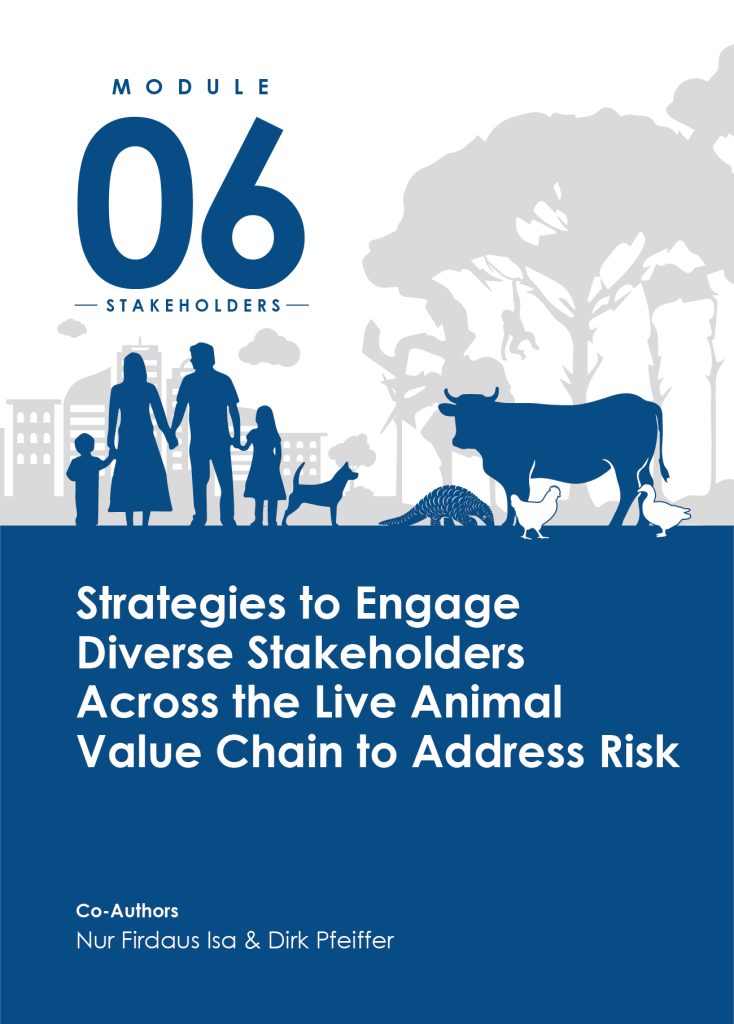

Conclusions
- Recognizing and understanding the multifaceted local contexts and their impact on pandemic risks is the foundational step towards crafting effective risk mitigation strategies.
- The engagement of a wide set of stakeholders is imperative to foster co-production of knowledge that empowers them to take ownership of the interventions.
- The dynamic nature of socio-ecological systems can be used to design creative solutions to the prevention of zoonotic spillover.
Strategies to Engage Diverse Stakeholders Across the Live Animal Value Chain
This module elaborates on the process of identifying and engaging a wide range of stakeholders, from individuals and local communities to broader populations, who play pivotal roles in creating, assessing, and managing risks across both domestic and wild live animal value chains. The module highlights critical points of contact facilitating transmission of zoonotic diseases and explores various stages of the animal and animal products value chain offering a set of culturally tailored, collaborative, and interdisciplinary solutions and recommendations to combat zoonotic disease spillover. The approach advocated within this module offers a holistic, collaborative, and inclusive perspective on zoonotic disease management, that could benefit populations throughout the region and beyond.
Contents
- The animal and animal products value chain within Southeast Asia: Structure and Components
- General stakeholder mapping activities and engagement best practices
- Establishing trusted networks in a fragmented system
- Critical points of contact between humans and animals in the value chain in Southeast Asia and associated complex risk factors
- Small-scale agrarian socio-economy and zoonotic disease risks in Southeast Asia
Project Management
The project, Countering Zoonotic Spillover of High Consequence Pathogens (HCP), is conducted in collaboration with the US National Academies of Sciences, Engineering, and Medicine (NASEM).
The project is locally managed by Project Officer, Hazel Yean Ru Ann, who is co-located with the INGSA-Asia office at Sunway University, Malaysia.
If you or your organisation are involved with the live animal supply chain in Asia, or have expertise in zoonosis, we encourage you to get in touch with the Project Officer and help us to operationalise and disseminate best practice in the field.

